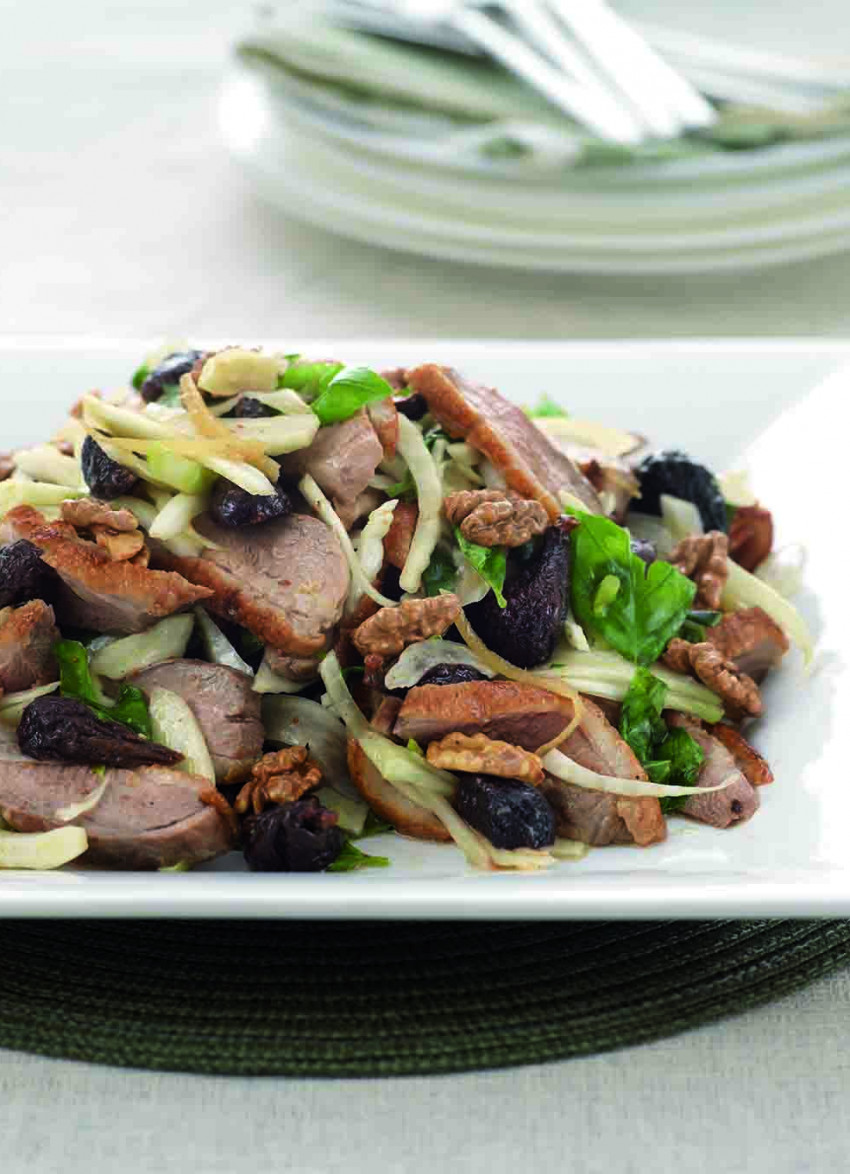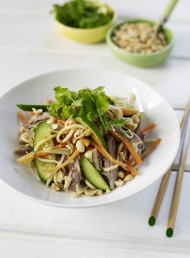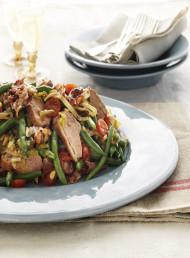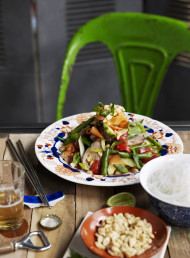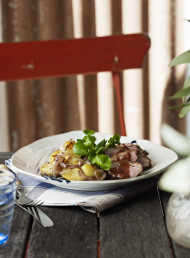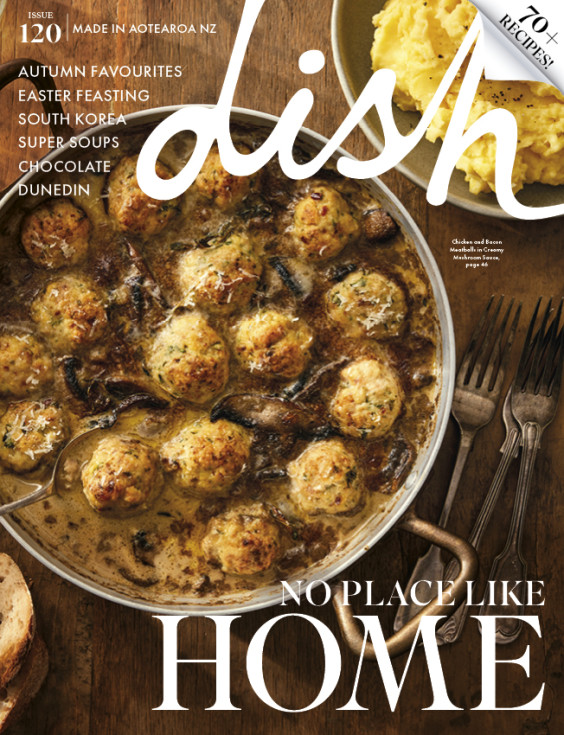Duck Breast Salad with Figs and Walnuts
Photography by Nick Tresidder.
You won't be able to get enough of this duck breast salad. Amazing bursts of flavour combining duck, figs, and walnuts dressed with a delicious fennel and lemon dressing.
Serves: 4-6
INGREDIENTS
4 single duck breasts
2 tablespoons fresh thyme leaves
2 cloves garlic, crushed
sea salt and freshly ground pepper
Salad
3⁄4 cup verjuice
1⁄4 cup extra virgin olive oil
1 clove garlic, crushed
juice of 1 lemon
1⁄2 preserved lemon, skin finely sliced
150 grams dried figs, roughly chopped
1⁄2 cup basil leaves, ripped
1 fennel bulb, thinly sliced
1⁄2 cup walnuts, toasted and roughly chopped
METHOD
Score the skin of each duck breast on the diagonal.
Combine the thyme, garlic, salt and pepper and rub onto both sides of the duck. Set aside. Heat a sauté pan with a little oil and add the duck, skin side down. Cook for 7 minutes over a medium heat then turn and cook the other side for 4 minutes.
While the duck is cooking, whisk together the verjuice, olive oil, garlic, lemon juice and the preserved lemon and season to taste. Pour into a shallow dish, large enough to take the duck in one layer. When the duck is cooked, remove from the pan and drain on paper towels. Place in the dressing, turning to coat well. Add the figs and basil leaves and turn again. Allow to sit for at least 10 minutes.
To serve: Take the duck out of the dressing and slice across the grain of the meat. Place the sliced duck back in the dish and turn to coat in the dressing. Add the sliced fennel and gently toss. Lift the salad onto a large serving platter and drizzle over any dressing left in the bowl. Scatter over the walnuts and serve with lots of fresh crusty bread for mopping up the delicious juices. Small, waxy potatoes baked in salt would be a great accompaniment.
Verjuice: In the 14th and 15th centuries French cooks used this juice made from unripe grapes. It has the tartness of lemon and the acidity of vinegar but without the harshness of either. It marries particularly well with nut oils. Use it to de-glaze pans, make vinaigrettes, or poach fruit in a syrup made from equal parts verjuice and sugar. Use white wine vinegar as an alternative in vinaigrettes or white wine for sauces or sweet applications. Available from specialty food stores.
Keep up to date with
dish weekly recipes,
food news, and events.
latest issue:
Issue #120
As the days become shorter, and the nights cooler, the latest issue is perfectly timed to deliver delicious autumn dishes. From recipes using fresh seasonal produce such as feijoas and apples, to spectacular soothing soups and super-quick after-work meals in our Food Fast section, we’ve got you covered. With Easter on the horizon, we feature recipes that will see you through breakfast, lunch and dinner over a leisurely weekend holiday, and whip up chocolatey baking treats sure to please. We round up delicious dinners for two and showcase a hot new Korean cookbook before heading south to Dunedin to check out all that’s new in food and dining.The latest issue of dish is on sale NOW at all good bookstores and supermarkets – don’t miss it!

